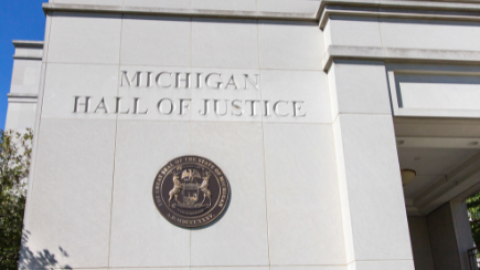Amicus Briefs

Amicus Brief to Supreme Court Asserting Judicial Review of Consular Visa Denials Available
The American Immigration Council filed an Amicus Brief with the American Immigration Lawyers Association to challenge the government's theory that judicial review is never available when a consular officer decides to deny a visa application. Read More

Council Files Amicus Brief with Supreme Court on Fair, Consistent Way to Interpret Aggravated Felony Deportation Ground
In this amicus brief the Council urges the Supreme Court to correct the BIA's mistake in not applying that criminal "rule of lenity" when interpreting the aggravated felony deportation ground. Read More

Amicus Brief Argues that Exclusionary Rule in Criminal Proceedings Should Apply to Evidence Related to Identity in Prosecutions for Illegal Reentry
In the amicus brief filed with the Third Circuit Court of Appeals, the Council argues that the exclusionary rule in criminal proceedings should apply to evidence related to identity, because it is an essential deterrent to ICE’s widespread racially discriminatory enforcement practices. Read More

Amicus Brief Filed with Supreme Court of Michigan in Support of State FOIA Request in Wrongful Detention Case
In the amicus brief filed with the Supreme Court of Michigan, the Council and partners reject Calhoun County's position to withhold records that otherwise would be released under the Michigan state FOIA. Read More

Amicus Brief to Supreme Court on Judicial Review Over Eligibility Determinations for Certain Forms of Discretionary Relief from Removal
This amicus brief addresses whether 8 U.S.C. § 1252(a)(2)(B)(i) precludes judicial review over eligibility determinations for certain forms of discretionary relief from removal for non citizens. Read More

Demanding ICE Provide Essential Data
The Council submitted an amicus brief explaining why ICE should release usable immigration data. The amicus brief was filed in a case where the ACLU is seeking information about how individuals are impacted by ICE enforcement practices. Read More
Council and Partners Urge Supreme Court to Stop Texas Court from Reinstatement of the Migrant Protection Protocols
This amicus brief urges the Supreme Court to stop the reinstatement of the Migrant Protection Protocols (MPP), and halt the lower court's poorly reasoned and factually flawed decision. Read More

Council and Partners Submit Amicus Brief to Stop the Reinstatement of the Migrant Protection Protocols
This brief highlights the court's many factual errors about MPP in its decision to reinstate the program. Read More

Supporting Detained Individual’s Right to Access ICE Detention Records through a State FOIA Request
In the amicus brief, the Council and partners reject Calhoun County's position to withhold records that otherwise would be released under the Michigan state FOIA. Read More

Council Files Amicus Brief on the Legality of Prolonged Mandatory Detention
The amicus brief in Ayom v. Garland urges the eighth circuit to affirm that mandatory detention has constitutional limits, and reject the endorsement of prolonged mandatory detention for people in removal proceedings. Read More
Make a contribution
Make a direct impact on the lives of immigrants.
